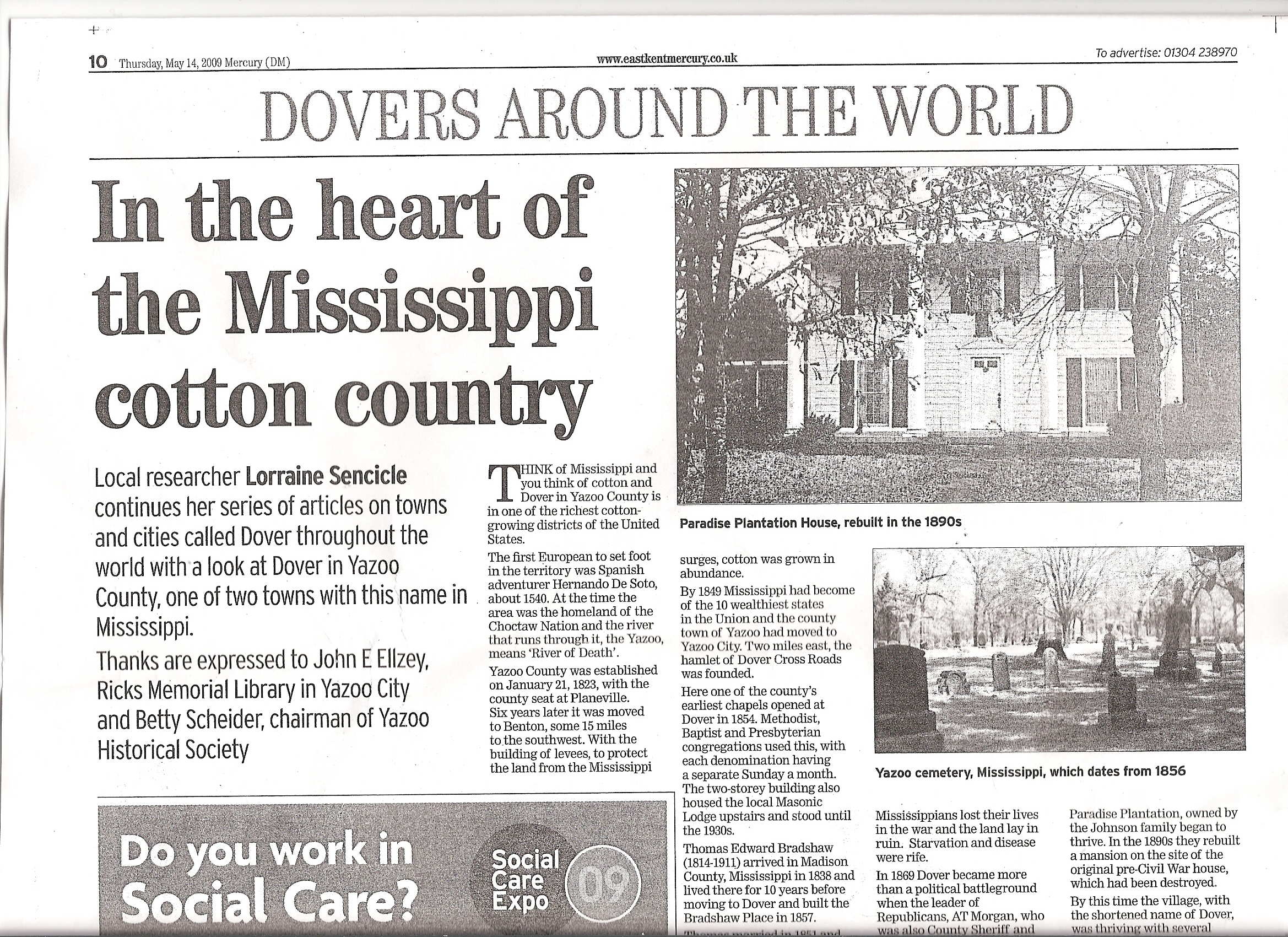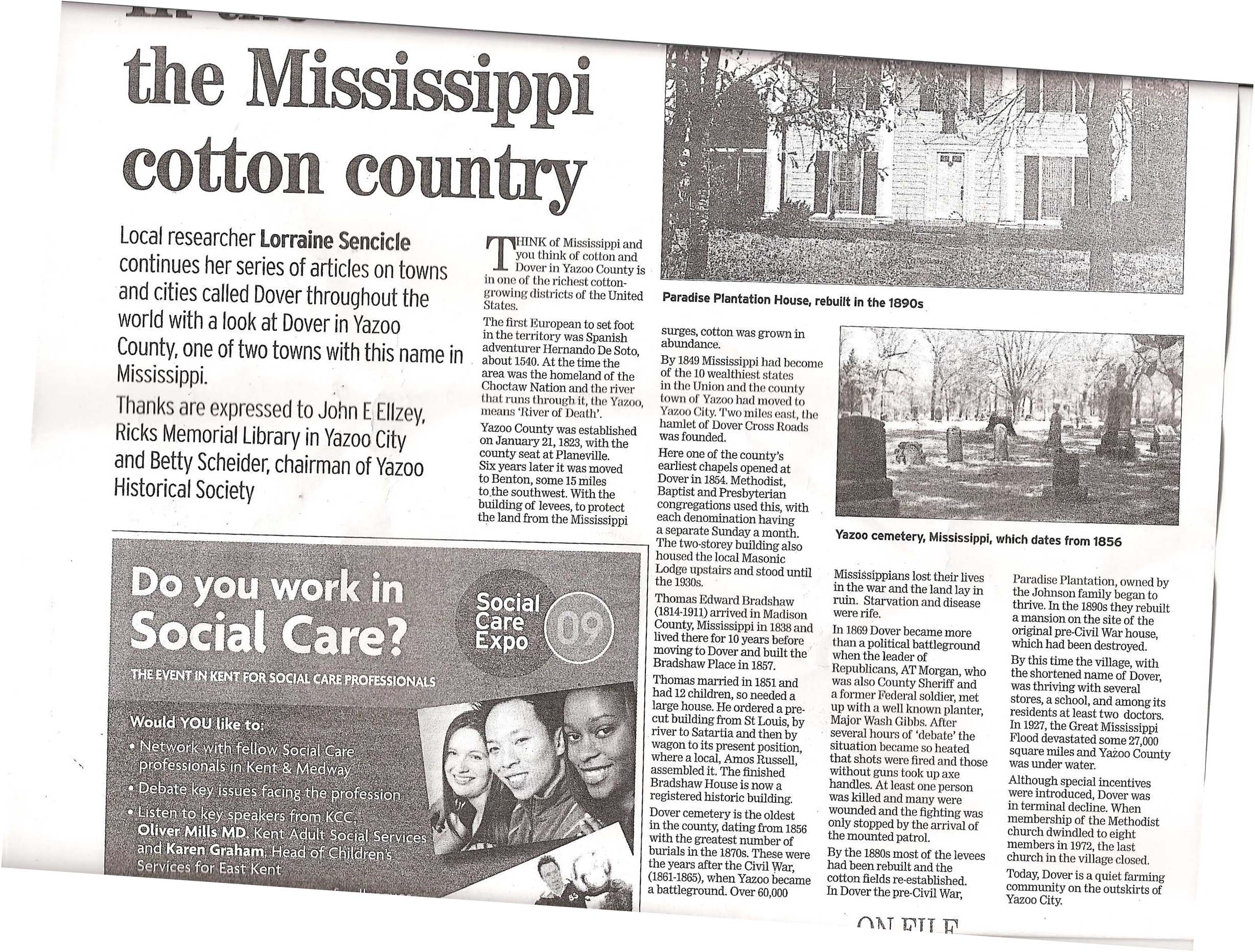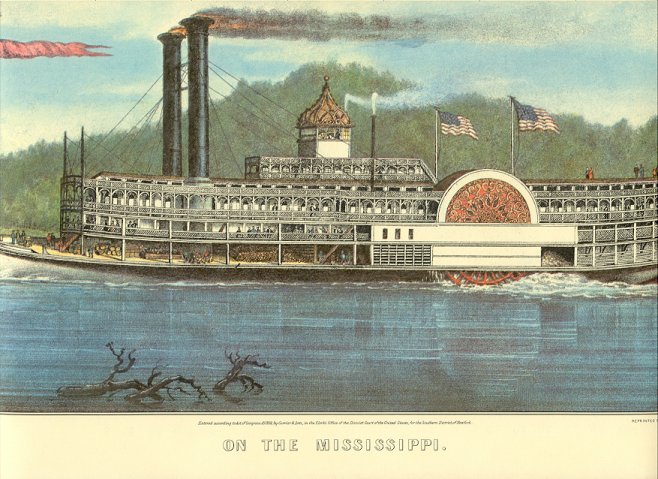 Excerpt of Yazoo's history from the book "A History of Mississippi" |
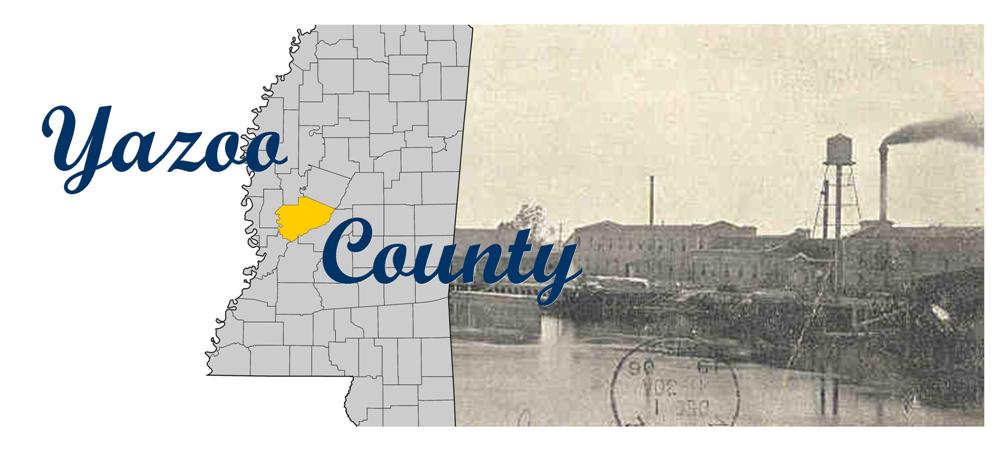
|
|||
A Dover Society in Yazoo Countyby Lorraine Sencicle (by kind permission of the Dover Mercury, (KMG) June 2009) 
Registered with the Civic Trust founded in 1988 Think of Mississippi and you think of cotton. One of the two Dover's in Mississippi is in Yazoo County, one of the richest cotton-growing districts of the United States. The first European to step foot in the territory was Spanish adventurer Hernando De Soto, about 1540. At the time the area that is now Yazoo county was the homeland of the Choctaw Nation and the river that runs through, the Yazoo, means 'River of Death’'. In 1681-82, Robert Cavelier, Sieur de La Salle, sailed down the Mississippi to its mouth and took possession of the entire valley for Louis XIV, king of France. He named the new protectorate Louisiana and within twenty years the first European colony was founded. However, as the land was taken directly from the existing inhabitants, the Native Americans, they made life difficult, which discouraged further settlers! From 1689 Britain and France were involved in a series of conflicts over the domination of North America. These were brought to an end by the Treaty of Paris (1763) when the French ceded Canada and all her territories east of the Mississippi River, except New Orleans, to the British. Spain also relinquished Florida, which then included part of Mississippi. During the American Revolution (1776-1783) Spain took possession of Florida but a series of treaties and annexations finally led, on 10 December 1817, to Mississippi being formally admitted as a State. Over the next few years most of the Native Americans were displaced by a series of sham treaties and eventually forcibly removed to Oklahoma (see D Mercury 17 January 2008). Yazoo County was established on 21 January 1823 with the county seat at Planeville. Six years later it was moved to Benton moved to Benton, some 15 miles to the southwest. With the building of levees, to protect the land from the Mississippi surges, cotton was grown in abundance. By 1849 Mississippi had become of the ten wealthiest states in the Union and the county town of Yazoo had moved to Yazoo City. Two miles east, the hamlet of Dover Cross Roads was founded. Here one of the county's earliest chapels opened at Dover in 1854. Methodist, Baptist and Presbyterian congregations used this, with each denomination having a separate Sunday a month. The two storey building also housed the local Masonic Lodge upstairs and stood until the 1930s, when it was replaced by a brick veneer building. Thomas Edward Bradshaw (1814-1911) arrived in Madison County, Mississippi in 1838 and lived there for ten years before moving to Dover and built the Bradshaw Place in 1857. Thomas married in 1851 and eventually had twelve children, so needed a large house. He ordered a pre-cut building from St Louis, by river to Satartia and then by wagon to its present position, where a local, Amos Russell, assembled it. The finished Bradshaw House is now a registered historic building. 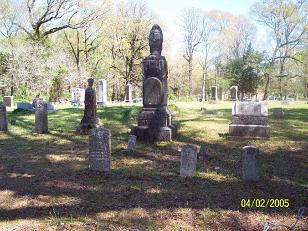 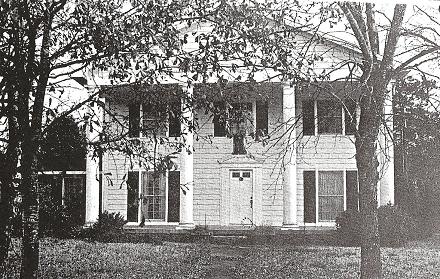
Dover cemetery is the oldest in the county, dating from 1856 with the greatest number of burials in the 1870s. These were the years after the Civil War, (1861-1865), during which Yazoo became a battleground and over 60,000 Mississippians lost their lives. Following the war, the land lay in ruin and starvation and disease were rife. In 1869 Dover became more than a political battleground when the leader of Republicans, A T Morgan, who was also the County Sheriff and a former Federal soldier, met up with a well known planter, Major Wash Gibbs. After several hours of 'debate' the situation became so heated that shots were fired and those without guns armed themselves with axe handles. At least one person was killed and many were wounded and the fighting was only stopped by the arrival of the mounted patrol. By the 1880s most of the levees had been rebuilt and the cotton fields re-established. In Dover the pre-Civil War, Paradise Plantation, owned by the Johnson family began to thrive. In the 1890s they rebuilt a mansion on the site of the original pre-Civil War house, which had been destroyed during the conflict. By this time the village, now with the shortened name of Dover was thriving with several stores, a school, and among its residents at least two medical doctors. Then, in 1927, the Great Mississippi Flood devastated some 27,000 square miles caused devastation and Yazoo County was underwater displacing the population. Although special incentives were introduced, Dover was in terminal decline. When membership of the Methodist church dwindled to eight members in 1972, the last church in the village closed. Today, Dover is a quiet farming community on the outskirts of Yazoo City. Thanks to John E Ellzey, Ricks Memorial Library Yazoo City and Betty Scheider Chairman Yazoo Historical Society. Article Source: |
||||
|
Home | Contact Us | USGenWeb History
All material provided is copyrighted by the submitter. No commercial use is legal without permission of the/all author(s) |
||||
